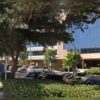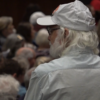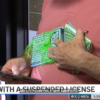November 20, 2011. The Lakeland Ledger.
BARTOW | An outline is coming together for better-coordinated efforts to extend health care to Polk County’s poorest uninsured residents, many of whom aren’t getting care despite ongoing county and volunteer programs.
Health system consultant Scott Ponaman gave an update Friday to members of the Citizens Healthcare Oversight Committee. The COC is an appointed advisory group that keeps an eye on how Polk County spends about $30 million raised each year by the county’s half-cent indigent care sales tax.
An estimated 118,000 people countywide are uninsured. The county’s Polk HealthCare Plan currently is covering medical and pharmacy care for about 4,928 people and is providing some funding to volunteer clinics and other programs that treat about 50,000.
“Even at our best right now, we are only able to serve half the people, really less than half the people, who need our services,” said the Rev. Eileen Stone, a member of Polk Ecumenical Action Council for Empowerment. PEACE, a countywide group of church congregations, consistently advocates for better access to medical care and drug rehabilitation, among other goals.
Patients among the 50,000 who aren’t on the Polk HealthCare Plan are getting primary care and some specialty care, but they generally don’t have hospital coverage and other elements of a full insurance plan.
A coordinated health planning and oversight entity would be a key element of the model system being designed. It would include people providing care for the uninsured, advocacy groups pushing for better access to care, county officials and the Polk HealthCare Plan, currently the county system by which sales tax dollars are distributed for indigent care.
The group — similar to the stakeholders group with which Ponaman has been meeting — would provide ongoing oversight. It would coordinate local funding and grant-seeking activities for indigent care and develop measurable outcomes for how indigent-care programs are doing.
Another element would be establishing a health information exchange through which different providers of health care could more quickly access information about patients treated by others in the system.
A hospital emergency department, for example, would be able to know about recent care a patient received from a doctor or nurse practitioner at a private medical office, a nonprofit federally qualified health center like Central Florida Health Care, the Polk County Health Department or one of the free volunteer clinics like Lakeland Volunteers in Medicine, the Haley Center, Parkview Outreach Community Center, Angels Care of Eloise or Lake Wales Free Clinic.
These are the places where uninsured county residents seek care.
A health information exchange would improve care, make it more coordinated and try to avoid unneeded duplication of care, Ponaman said.
Mobile units are needed to bring care into areas of Polk County that lack doctors and have limited or no public transportation. After-hours urgent care is needed for the uninsured to discourage them from using the more expensive emergency department for illnesses not needing that degree of intensity, he said.
Dr. Sergio Seoane, an oversight committee member, agreed with Ponaman on the importance of a health information exchange, but he said he doesn’t want the proposed coordinated health care planning and oversight group of stakeholders to turn into a proposition requiring buildings and major costs.
“This could be very expensive,” he warned.
Ponaman and Stone assured him the group is for planning and coordination, not creation of another barrier to spending money on care.
Dr. Tom McMicken, another oversight committee member, also supported exchange of information, although he said the final plan needs to include guarantees the information will remain within the network of care.
Efforts to repeal federal health care reform laws are complicating the advisory group’s planning, Ponaman said, but its members see many of the elements proposed as things they can do regardless of what happens nationally.





